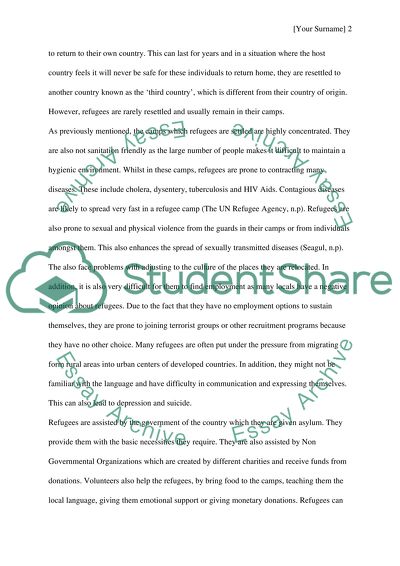Cite this document
(“Refugees Research Paper Example | Topics and Well Written Essays - 1000 words”, n.d.)
Retrieved from https://studentshare.org/history/1470289-refugees
Retrieved from https://studentshare.org/history/1470289-refugees
(Refugees Research Paper Example | Topics and Well Written Essays - 1000 Words)
https://studentshare.org/history/1470289-refugees.
https://studentshare.org/history/1470289-refugees.
“Refugees Research Paper Example | Topics and Well Written Essays - 1000 Words”, n.d. https://studentshare.org/history/1470289-refugees.


